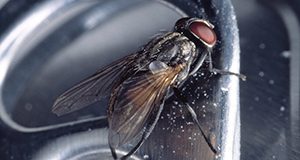Florida law requires drivers to have car insurance that provides financial protection in the event of a mishap. This 4-page publication provides an overview of auto insurance requirements in Florida as well as a glossary of car insurance terms for college students. Written by Nicholas Horvath, Jorge Ruiz-Menjivar, and Sarah M. Ellis, and published by the UF/IFAS Department of Family, Youth and Community Sciences, January 2021.
https://edis.ifas.ufl.edu/fy1493
Tag: Sarah M. Ellis
Cottage Food in Florida
In Florida, individuals can manufacture, sell, and store specific types of cottage food products in their primary home kitchen in accordance with Florida Statute 500.80. This new 3-page fact sheet, written by Sarah M. Ellis, Jennifer Hagen, and Matthew D. Krug and published by the UF/IFAS Food Science and Human Nutrition Department, provides basic information and resources for clientele who are interested in starting a food-based business out of their home kitchen. This document is one in a “Florida Food Entrepreneur” series, which seeks to assist new and established food entrepreneurs by providing information on topics relevant to food-based businesses.
https://edis.ifas.ufl.edu/fs425
Gender Affirmation Surgery: Financial Considerations
This 3-page factsheet provides a brief overview of gender-affirming medical care, expenses, and funding options. A glossary with key terms discussed in this publication is included at the end. Written by Chloe W. Swearingen, Megan Donovan, Jorge Ruiz-Menjivar, and Sarah M. Ellis, and published by the UF/IFAS Department of Family, Youth and Community Sciences, November 2020.
https://edis.ifas.ufl.edu/fy1492
Homeowner’s Guide to Selecting a Pest Control Service
While you can prevent pests from infesting your home, you might need the services of a professional to evict them if they have already moved in. The pest control industry in Florida is the largest in the nation. How do you choose the best pest control company for you? This 6-page fact sheet written by Faith Oi, James E. Davis, John M. Diaz, Sarah M. Ellis, Randall A. Cantrell, Nelly Nelson, and Judy Corbus and published by the UF/IFAS Entomology and Nematology Department is full of practical tips and advice to help you choose a reliable and effective pest control service to help you kick out any uninvited crawlies.
http://edis.ifas.ufl.edu/in1269
Strategies to Fund Your Child’s College Education: Using Savings and Tax-Advantaged Vehicles
It is never too soon to explore funding options for college educations, whether your child is a newborn or is in middle school. You are more likely to be prepared to fund your child's education if you start planning earlier. This new 4-page document describes and discusses several accounts that allow you to pay for college while taking advantage of tax and savings opportunities. Written by Jessica McCumber, Jorge Ruiz-Menjivar, Martie Gillen, and Sarah M. Ellis, and published by the UF/IFAS Department of Family, Youth and Community Sciences, June 2019.
http://edis.ifas.ufl.edu/fy1484
Positive Discipline: Behavioral Management Skills for Parents and Teachers, Part 3: Fostering the Parent-Child and Teacher-Student Relationship to Build Responsibility
Tell me and I forget,
Teach me and I may remember,
Involve me and I learn.
The general goal of healthy parenting and teaching is to produce children and students who can think critically, make good decisions, and become independent, accountable, responsible, and contributing members of society. Part 3 of this Positive Discipline: Behavioral Management Skills for Parents and Teachers series covers tips and strategies to help parents and teachers build critical thinking and positive behavioral skills in children. Several of these strategies that can help parents and teachers achieve these goals through “love and logic” are discussed in this 6-page fact sheet written by Victor Harris, Whitney Fung, Sarah Ellis, and Alison Schmeer, and published by the UF Department of Family Youth and Community Sciences, July 2015. (Photo Credit: Thinkstock.com/iStock/natasaadzic)
http://edis.ifas.ufl.edu/fy1460
Positive Discipline: Behavioral Management Skills for Parents and Teachers, Part 2: General Approaches to Managing Behavior
When a child is locked in the bathroom
With water running
And he says he is doing nothing
But the dog is barking,
Call 911.
–Erma Bombeck
Research indicates that there must be at least an 8-to-1 positive-to-negative interaction ratio for parents and teachers to have a positive relationship with their children and students. Put simply, both verbal and non-verbal communication needs to be generally positive. Learning how to steer a child or a student toward managing his or her own behavior in healthy ways requires both knowledge and skills that make it easy to have positive interactions and behavior change. This 6-page fact sheet will help you identify specific approaches to successfully managing appropriate and inappropriate behavior at home and in the classroom. It outlines four principles of behavior management, and describes several strategies before providing a practice activity. Written by Victor Harris, Whitney Fung, Sarah Ellis, and Alison Schmeer, and published by the UF Department of Family Youth and Community Sciences, July 2015. (Photo Credit: Thinkstock.com/Jupiterimages/Creatas Images)
http://edis.ifas.ufl.edu/fy1459
Positive Discipline: Behavioral Management Skills for Parents and Teachers, Part 1: Types of Misbehaviors and Keys to Success
“Before I got married I had six theories about bringing up children; now I have six children, and no theories.” — John Wilmot
Parents and teachers often experience a lot of insecurities, especially with regard to helping children manage their own behaviors. Not surprisingly, there are many similarities in the skills that effective parents and teachers use to help children manage their own behavior successfully. Building a foundation for healthy and effective parenting and teaching begins with understanding some different types of misbehaviors. This 4-page fact sheet discusses four common types of misbehaviors, encourages the reader to identify healthy and unhealthy practices, and continues with key factors of effective parenting and teaching. Written by Victor Harris, Whitney Fung, Sarah Ellis, and Alison Schmeer, and published by the UF Department of Family Youth and Community Sciences, July 2015. (Photo credit: Thinkstock.com/iStock)
http://edis.ifas.ufl.edu/fy1458
The Impact of Fathers on Children's Well-Being
 American families have changed dramatically over the last century. Currently, about half the children in the United States will live apart from their fathers some time during their childhood because their parents have separated and the proportion of births to unmarried women has risen from 5 percent in 1960 to 41 percent in 2011. But a father who is absent from the household may not necessarily be absent from his child’s life. This 5-page fact sheet provides a brief summary of the history of fatherhood in America and discusses the importance of involved fathers, and how mothers, other family members, and adult role models can make a positive impact in a child’s life. Written by Sarah M. Ellis, Yasmin S. Khan, Victor W. Harris, Ricki McWilliams, and Diana Converse, and published by the UF Department of Family Youth and Community Sciences, October 2014.
American families have changed dramatically over the last century. Currently, about half the children in the United States will live apart from their fathers some time during their childhood because their parents have separated and the proportion of births to unmarried women has risen from 5 percent in 1960 to 41 percent in 2011. But a father who is absent from the household may not necessarily be absent from his child’s life. This 5-page fact sheet provides a brief summary of the history of fatherhood in America and discusses the importance of involved fathers, and how mothers, other family members, and adult role models can make a positive impact in a child’s life. Written by Sarah M. Ellis, Yasmin S. Khan, Victor W. Harris, Ricki McWilliams, and Diana Converse, and published by the UF Department of Family Youth and Community Sciences, October 2014.
http://edis.ifas.ufl.edu/fy1451







